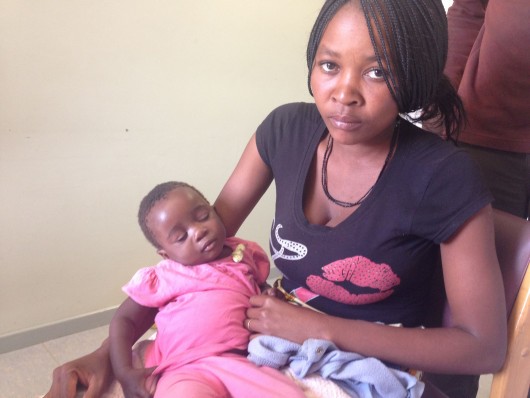Today I mark the start of my eleventh summer in Angola. In 2004, I received a kind invitation from Steve Foster and the fledgling Lubango Evangelical Medical Center (CEML) to join them in developing this unique primary care and surgical training center. Right from the start I received a stark reminder of the interdependent relationship between disease/health, personal income, and education/literacy. The eighteen month old Julia, whose mother permitted this photo, has neither grown nor mentally developed as she should. The reason? The medical side of me points to her clinically obvious congenital heart disease: a simple ventricular septal defect.
But why by age eighteen months has this defect not been surgically repaired? Namibia, the nation to the south, has the full capability. As I spoke with Julia’s parents the reasons became clearer, and here is where the above-mentioned interdependency comes into play. The child and parents visited the pediatric chest surgeon in Namibia. But the parents have no money to pay for the procedure. At their low education level, they each earn the national minimum allowable salary of $118 each month. Literacy and communication also play a critical role. Several times this mother exclaimed how she could not understand what the Namibian healthcare personnel were saying in English. Julia was not suffering so much from a lack of medical care options but rather the deficient public health infrastructures that impede medical care.
So indeed Julia needs chest surgery, and we at CEML will do our best on her behalf. But provision of medical/surgical care is only a component of the necessary resources. Comprehensive health improvement also means comprehensive community development, with attention to education, literacy, jobs and income. They are all interconnected.
INMED students often express to me surprise that our International Medicine & Public Health Intensive Course contains more content in public health than in medicine. After all, aren’t we the “Institute for International Medicine?” The public health emphasis is indeed intentional. The greatest progress in health cannot be attributed to medical interventions, but rather to improvements in basic nutrition, education, sanitation, economic growth, and disease prevention. In low-resources environments the potential outcome of assuring these basic human needs is marvelous for communities as a whole, and for small individuals like Julia.

